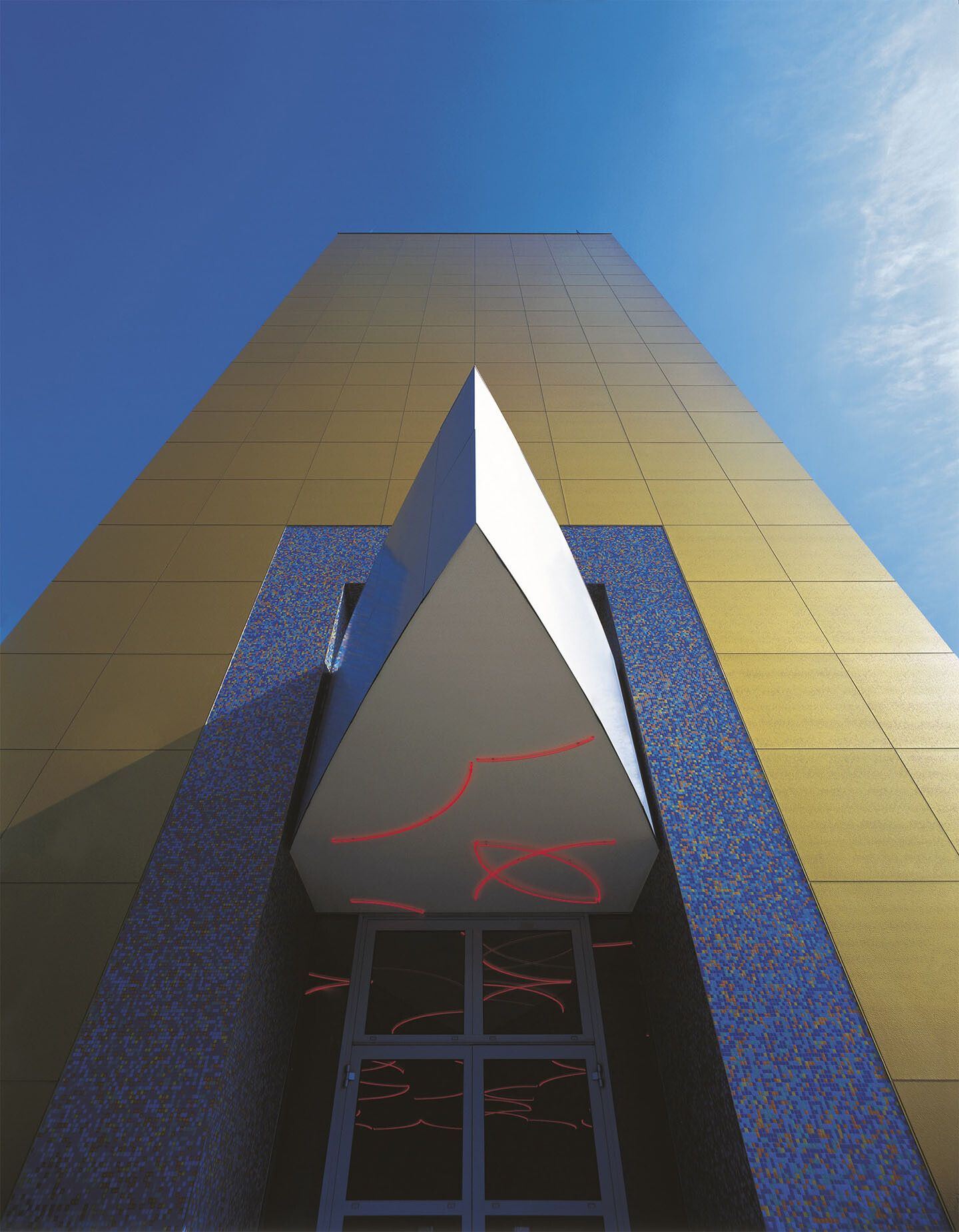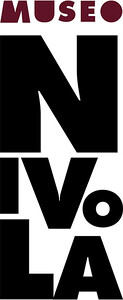May 4–June 16, 2019
Curated by Aldo Colonetti
Opening: May 4, 6pm
“This is our heresy: the structure of architecture resolves itself in the facade, the function of the object finds its fulfillment in the decorative narration of the surface, everything is the drawing or the sculpture of itself: designing is painting.”
This is how Alessandro Mendini in 1994 summarized the philosophy of Atelier Mendini, an extraordinary workshop which, under the guidance of himself and his brother Francesco, started a new way of doing architecture, art and design beyond any disciplinary boundary. The Museo Nivola, paying homage to Alessandro Mendini after three months from his passing, presents the outcome of 50 years of architectural planning: all Atelier Mendini’s public and private architectures, shown by 25 extraordinary accurate wooden maquettes of 25 buildings, together with a related series of drawings. In the exhibition, produced by Abet Laminati, the most famous buildings by the Atelier come alive in a miniaturized, Gulliverian scale, as toy-sculptures: from the visionary Groningen Museum in Holland (1989-1994) to the Tower of Paradise in Hiroshima, Japan, to the most recent projects in South Korea. The Mendinian architecture is post-modern and neo-constructivist, colorful and joyful. It subverts the relationship between structure and decoration, claiming the supremacy for the second, understood not as superficiality but - in Mendini’s own words - as “cult of the surface, on which is inscribed, through decoration, a richness of visual narration that offsets the dullness of the function.” As Colonetti puts it, the maquettes are not just project tools, but also “autonomous expressive works, they look as they were abruptly parachuted in the museum’s space with their unexpected strength.” At the Museo Nivola they relate to the simple and essential architecture of the exhibition space—once the public wash house of the village. The exhibition layout by Alessandro Floris focuses on color to put the exceptional plastic creations of the Atelier in relation with the museum’s space and the Mediterranean light that floods it.
Alessandro Mendini (1931-2019), architect, artist, designer, theorist and journalist, was born in Milan. After graduating in 1959, he started his career in Marcello Nizzoli’s studio. In 1970 he left architectural planning to devote himself to architecture and design journalism: he directed Casabella, Modo and Domus, magazines through which he spread his ideas of transforming the world of the project. Together with Branzi and Sottsass, taking part in Global Tools and Radical Design, he was the main theorist and promoter of the renewal of Italian design during the Seventies.
Francesco Mendini, architect, was born in Milan in 1939. He started his activity at Nizzoli Associates with architectural projects such as the new quarters, offices and social center for the Italsider in Taranto and other building complexes in Europe and North Africa. During the Seventies he also focused on engineering and constructions and he was advisor for several research institutes and for the Italian CNR. In 1989 Alessandro and Francesco Mendini opened Atelier Mendini in Milan.
The Museo Nivola
The Museo Nivola in Orani, located in the middle of a park in the heart of Sardinia, is devoted to the work of Costantino Nivola (Orani, 1911–East Hampton, 1988), an important figure in the international movement for the “synthesis of the arts” (the integration of the visual arts and architecture) who also played a key role in the cultural exchange between Italy and the United States in the second half of the 20th century. The museum has a permanent collection comprising more than 200 sculptures, paintings, and drawings by Nivola and organizes temporary exhibitions focused primarily on the relationship between art, architecture, and landscape.
The exhibition has been made possible thanks to the support of Abet Laminati and Fondazione di Sardegna
Institutional sponsors: Regione Autonoma della Sardegna, Comune di Orani
Technical Sponsor: Magis
Catalog by Postmedia Books with essays by Andrea Branzi, Aldo Colonetti, Michele de Lucchi, Richard Ingersoll.



